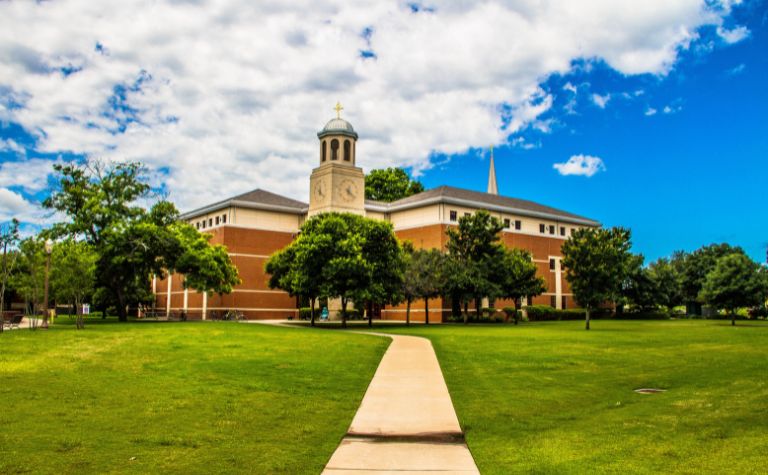Choosing the right educational path is a crucial decision, especially when you’re interested in studying theology, ministry, or related disciplines.
The terms “Bible college” and “seminary” often come up in these discussions, but what exactly sets them apart?
Understanding the differences between these two types of institutions can help you make an informed choice that aligns with your career goals and educational needs.
In this article, we’ll break down the key distinctions, from educational level and curriculum focus to accreditation and career paths, to help you decide which option is best for you.

Comparing Seminary and Bible College: An Overview
| Seminary | Bible College | |
|---|---|---|
| Educational Level | Graduate | Undergraduate |
| Duration | Typically 2-4 years (e.g., M.Div. is 3 years) | Typically 4 years |
| Primary Focus | Advanced theological studies, pastoral training, and ministry leadership | Foundational biblical studies, ministry preparation, and Christian education |
| Degree Offered | Master of Divinity, Master of Theology, Master of Arts, etc. | Varies, from one-year diplomas to Bachelor’s degrees |
| Admission Requirements | Bachelor’s degree, letters of recommendation, statement of purpose | High school diploma or equivalent, personal statement, sometimes a pastoral recommendation |
| Curriculum | In-depth theological courses, biblical languages, pastoral counseling, homiletics | Mostly introductory Bible courses, and ministry training |
| Practical Experience | Internships, pastoral residencies, field education | Ministry practicums, mission trips, local church involvement |
| Accreditation | Accredited by theological and regional accrediting bodies | Some accredited, some not |
| Career Paths | Pastor, theologian, counselor, academic, missionary | Pastor, missionary, youth minister, Christian educator, etc. |
| Campus Life | Often includes on-campus housing, libraries, and research facilities | Some have traditional college experience with dorms, student organizations, and campus events |
| Cost | Typically higher due to the advanced nature of the studies | Varies, but often more affordable than graduate seminary |
| Financial Aid | Some scholarships, grants, loans, and work-study opportunities | Some scholarships, grants, loans, and sometimes work-study opportunities |

Educational Level of Seminary and Bible College
One of the most straightforward differences between Bible college and seminary is the level of education offered.
Bible colleges typically provide undergraduate programs, often leading to an associate’s or bachelor’s degree.
These programs are designed for students who are just starting their higher education journey and may not have a clear career path in mind yet.
On the other hand, seminaries usually offer graduate-level programs, such as Master’s of Divinity or Doctorate of Ministry.
These are tailored for individuals who have already completed an undergraduate degree and are looking to specialize further, often with a specific career goal like pastoral ministry or academic research in mind.
Curriculum Focus
Another key difference between Bible college and seminary lies in the focus of the curriculum.
Bible colleges often offer a broad range of subjects, including but not limited to biblical studies.
Students might take courses in history, science, and the arts, alongside their biblical coursework.
This provides a well-rounded education and allows for exploration of various interests.
In contrast, seminaries are more specialized institutions, focusing on advanced theological studies, pastoral care, and leadership training.
The coursework is designed to prepare students for specific roles, such as clergy, counselors, or scholars.
The curriculum is often more intensive and requires a deeper commitment to specialized study.

Accreditation of Seminaries and Bible Colleges
When it comes to the quality of education, accreditation is a crucial factor to consider for both Bible colleges and seminaries.
Accreditation ensures that the institution meets certain educational standards set by an external body.
Bible colleges sometimes seek accreditation from regional or national educational organizations, which allows them to offer a variety of degrees, including associate’s and bachelor’s degrees.
Seminaries, on the other hand, often pursue specialized accreditation from theological accrediting bodies.
This type of accreditation is tailored to the unique needs and goals of advanced theological education and is a mark of quality in the field.
Career Paths
Bible colleges often prepare students for a range of roles, from education and social work to business and communications, albeit usually within a specific community context.
The focus is often broader, and the skill set acquired can be applied in various sectors.
Seminaries, however, are more specialized institutions designed to prepare students for leadership roles in theological settings.
Graduates often go on to become pastors, chaplains, or theological scholars.
The training is more in-depth in areas such as theology, pastoral care, and ancient languages, equipping students for specialized roles that require a deep understanding of these subjects.
Understanding the career paths associated with each type of institution can help prospective students make an informed decision about where to study.
Duration of Programs
The length of time you’ll spend in school varies between Bible colleges and seminaries.
Bible colleges typically offer four-year undergraduate programs leading to a bachelor’s degree.
Some may also offer two-year associate degrees or shorter certificate programs.
Seminaries, on the other hand, are generally graduate-level institutions.
Most students enroll after completing a bachelor’s degree, and the programs often last between two to four years, depending on the degree pursued.
For example, a Master of Divinity program usually takes three years to complete.
Cost and Financial Aid
When it comes to expenses, Bible colleges and Seminaries can differ significantly.
Bible colleges often have a lower tuition cost, similar to that of many undergraduate programs.
They may also offer more scholarship options for undergraduates, including merit-based and need-based financial aid.
Seminaries, being graduate-level institutions, generally have higher tuition fees.
However, many seminaries offer various forms of financial aid, including scholarships, grants, and work-study programs to help offset the costs.
Some even have partnerships with organizations that provide financial support to students in exchange for service commitments after graduation.
Student Life
The atmosphere and community experience can vary between Bible colleges and seminaries.
Bible colleges often have a more traditional campus life, complete with dormitories, extracurricular activities, and a wide range of student organizations.
These colleges are generally designed to cater to younger adults and may offer a more vibrant social scene.
Seminaries, on the other hand, often attract a more diverse age range, including mid-career professionals and those looking for a second career.
The focus is usually more academic, and while there may be community events and organizations, they are often geared toward networking and professional development rather than social activities.
Both types of institutions aim to foster a sense of community and belonging, but the way they go about it can be quite different.
Knowing what kind of student life you’re looking for can help you choose the right institution for you.
Recent Posts
David Jeremiah, a renowned pastor, author, and speaker, has captivated the hearts of many with his compelling sermons. His messages resonate deeply with diverse audiences, leaving an enduring...
Tim Keller, a distinguished pastor, theologian, and author, has garnered a devoted following through the profound impact of his sermons. In this article, we will explore seven compelling reasons...
